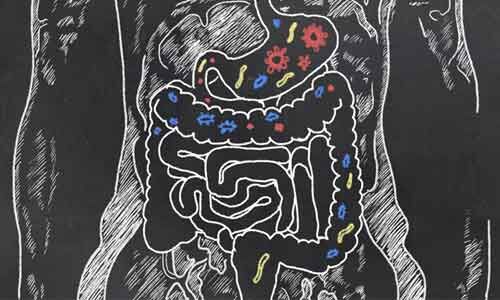- Home
- Medical news & Guidelines
- Anesthesiology
- Cardiology and CTVS
- Critical Care
- Dentistry
- Dermatology
- Diabetes and Endocrinology
- ENT
- Gastroenterology
- Medicine
- Nephrology
- Neurology
- Obstretics-Gynaecology
- Oncology
- Ophthalmology
- Orthopaedics
- Pediatrics-Neonatology
- Psychiatry
- Pulmonology
- Radiology
- Surgery
- Urology
- Laboratory Medicine
- Diet
- Nursing
- Paramedical
- Physiotherapy
- Health news
- Fact Check
- Bone Health Fact Check
- Brain Health Fact Check
- Cancer Related Fact Check
- Child Care Fact Check
- Dental and oral health fact check
- Diabetes and metabolic health fact check
- Diet and Nutrition Fact Check
- Eye and ENT Care Fact Check
- Fitness fact check
- Gut health fact check
- Heart health fact check
- Kidney health fact check
- Medical education fact check
- Men's health fact check
- Respiratory fact check
- Skin and hair care fact check
- Vaccine and Immunization fact check
- Women's health fact check
- AYUSH
- State News
- Andaman and Nicobar Islands
- Andhra Pradesh
- Arunachal Pradesh
- Assam
- Bihar
- Chandigarh
- Chattisgarh
- Dadra and Nagar Haveli
- Daman and Diu
- Delhi
- Goa
- Gujarat
- Haryana
- Himachal Pradesh
- Jammu & Kashmir
- Jharkhand
- Karnataka
- Kerala
- Ladakh
- Lakshadweep
- Madhya Pradesh
- Maharashtra
- Manipur
- Meghalaya
- Mizoram
- Nagaland
- Odisha
- Puducherry
- Punjab
- Rajasthan
- Sikkim
- Tamil Nadu
- Telangana
- Tripura
- Uttar Pradesh
- Uttrakhand
- West Bengal
- Medical Education
- Industry
Novel probiotic may help control blood sugar in diabetes, finds BMJ study

USA: A novel probiotic formulation containing gut bacteria that are under-represented in the intestinal tracts of type 2 diabetes patients was shown to improve blood sugar levels in a recent study. The study, published in the journal BMJ Open Diabetes Research & Care, found that the novel probiotic product -- Pendulum Glucose Control -- improved postprandial blood sugar control.
The new probiotic product containing gut bacteria strains that are deficient in people with type 2 diabetes modestly improves blood sugar levels, new research suggests.
Blood sugar is commonly considered too high if it is higher than 130 mg/dl before a meal or higher than 180 mg/dl two hours after the first bite of a meal. However, most of the signs and symptoms of high blood sugar don't appear until the blood sugar level is higher than 250 mg/dl.
Previous studies have shown that specific, naturally occurring gut bacteria is under-represented in the intestinal tracts of type 2 diabetes patients. Also, their functions such as butyrate production and gut barrier stability are essential for insulin and glucose homeostasis. The objective of this study conducted by Fanny Perraudeau, Pendulum Therapeutics, Inc, San Francisco, California, USA, and colleagues was to test the hypothesis enteral exposure to microbes with these proposed functions can help in improving clinical measures of blood sugar control and thereby play a role in the overall dietary management of diabetes.
The researchers evaluated whether a probiotic comprised of these anaerobic bacteria would help in enhancing dietary management by (1) manufacturing two novel probiotic formulations containing three (WBF-010) or five (WBF-011) distinct strains in a Current Good Manufacturing Practice (cGMP) facility, (2) establishing consistent live-cell concentrations, (3) confirming safety at target concentrations dispensed in both animal and human studies and (4) conducting a 12-week parallel, double-blind, placebo-controlled, proof-of-concept study in which subjects previously diagnosed with T2D (n=76) were randomly assigned to a two times a day regimen of a placebo, WBF-010 or WBF-011.
Key findings of the study include:
- No safety or tolerability issues were observed.
- Compared with the placebo group, subjects administered WBF-011 (which contains inulin, Akkermansia muciniphila, Clostridium beijerinckii, Clostridium butyricum, Bifidobacterium infantis andAnaerobutyricum hallii) significantly improved in the primary outcome, glucose total area under the curve (AUC): −36.1 mg/dL/180 min, and also improved in secondary outcomes, glycated hemoglobin (A1c): −0.6, glucose incremental-AUC: −28.6 mg/dL/180 min.
"To our knowledge, this is the first randomized controlled trial to administer four of the five strains to human subjects with T2D. This proof-of-concept study shows that the intervention was safe and well-tolerated and that supplementation with WBF-011 improves postprandial glucose control. The limited sample size and intersubject variability justify future studies designed to confirm and expand on these observations," concluded the authors.
The study, "Improvements to postprandial glucose control in subjects with type 2 diabetes: a multicenter, double blind, randomized placebo-controlled trial of a novel probiotic formulation," is published in the journal BMJ Open Diabetes Research & Care.
Dr Kamal Kant Kohli-MBBS, DTCD- a chest specialist with more than 30 years of practice and a flair for writing clinical articles, Dr Kamal Kant Kohli joined Medical Dialogues as a Chief Editor of Medical News. Besides writing articles, as an editor, he proofreads and verifies all the medical content published on Medical Dialogues including those coming from journals, studies,medical conferences,guidelines etc. Email: drkohli@medicaldialogues.in. Contact no. 011-43720751


